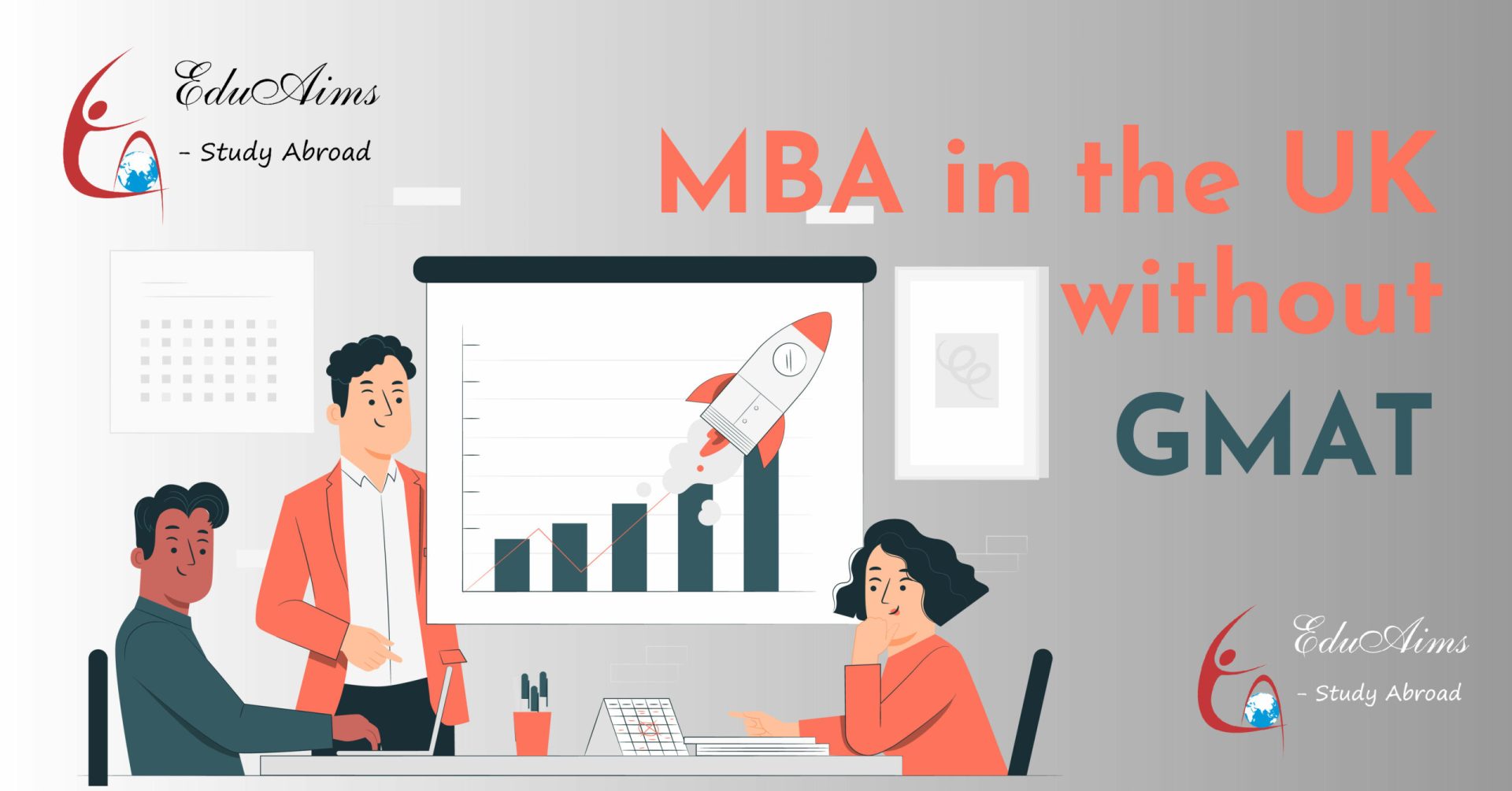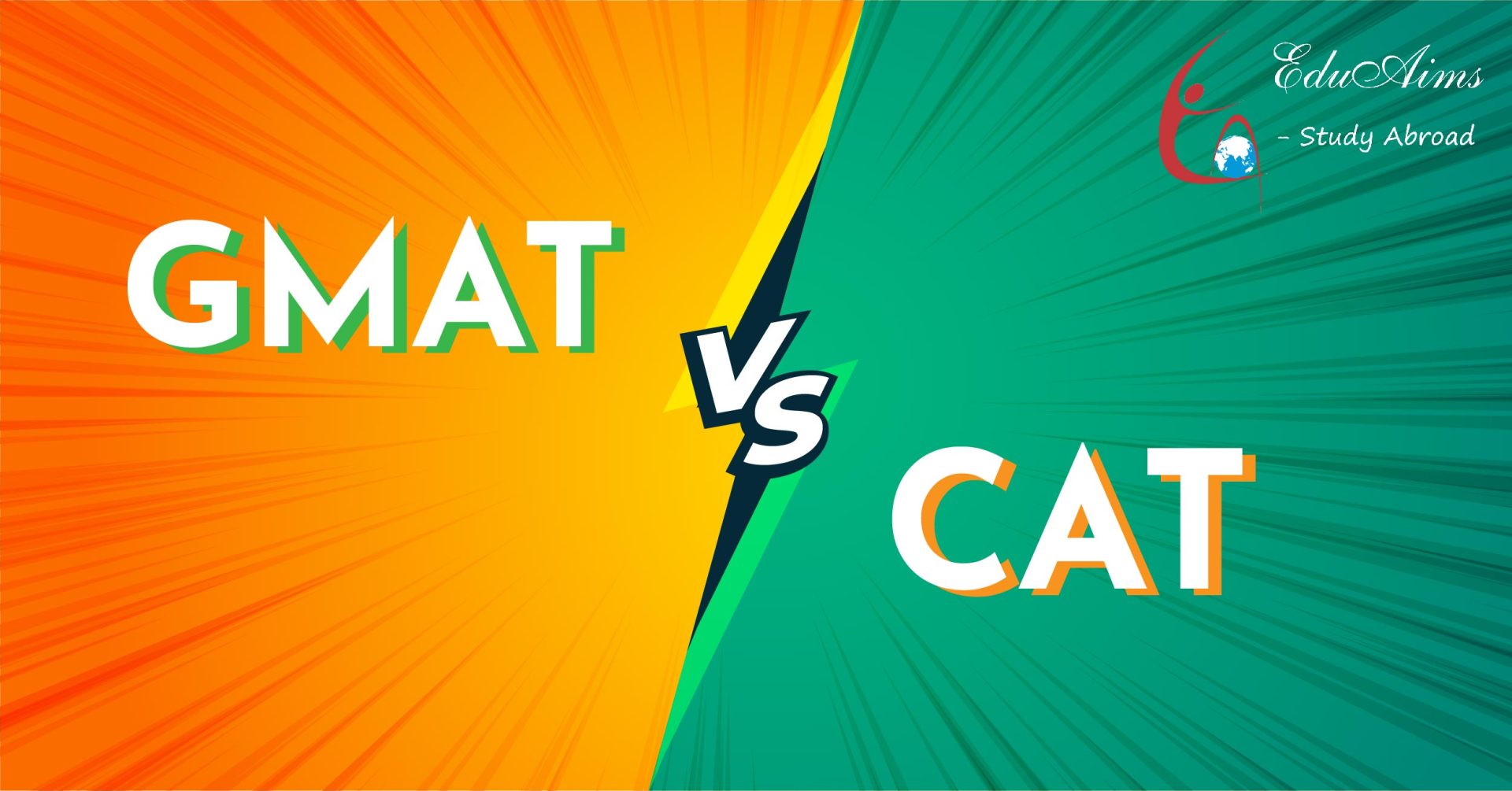An MBA in the UK arms you with the fundamental knowledge of management and global exposure to teams of experts and professionals. The Graduate Management Admission Test (GMAT) is the standardised evaluating system undoubtedly adopted by most Graduate Business Schools around the globe. However, some exceptions have a flexible system of evaluation with alternative requirements for a holistic assessment of the applicant. Various Universities provide MBA in the UK without GMAT which is the most beneficial for managers in search of opportunities to amplify their current careers, switch industries, functions or geographies. The UK functionally provides the best place to study for students as well as working professionals. MBA in the UK without GMAT is a student-driven course structured in a way to gain maximum learning from peers as well as professors.
The GMAT score forms one of the criteria for the selection of students into an MBA programme. However, the GMAT scores have been exponentially rising in the last few years. To the reader’s relief, there are business schools that consider other aspects of the applicants for admission. The universities of the UK take into consideration the rigorous amount of time you need to dedicate while preparing for the GMAT. This gives the advantage to focus on your work and other family commitments without having to curb your career aspirations. The relaxation in MBA in the UK without GMAT scores comes with other considerations including your work experience, communication skills, letters of recommendation and a good CV. Waiving off GMAT allows the applicants to be assessed holistically.
Advantages of Studying MBA in the UK without GMAT
The UK is the home to the most top-ranking renowned MBA colleges in the world that imparts world-class business education. Here are some of the advantages that choosing an MBA in the UK without GMAT will provide over other countries:
- Quality Education: UK being the hub for top ranking MBA courses, imparts quality education with continuous evaluation. The institutes take complete responsibility for ensuring quality education both independently and with the help of authorized agencies. There are professional bodies that guide, evaluate and review individual departments.
- Alumni Network: Along with instant global recognition, UK universities provide you with a strong networking base. A global school opens you to a powerhouse of resources and professional links that would have a great impact on your career.
- Diverse Courses: Comparatively, business schools in the UK provide a range of interesting options to choose from. The curriculum is constantly at work to add new and multidimensional topics. Among the many options, you have Finance, Economics, Human resources, Accounting, Marketing, Management Operations, Information systems, and Quantitative methods to choose from.
- Research Infrastructure: MBA in the UK without GMAT provides world-leading and internationally excellent research options. With access to top journals and libraries, the universities provide a good environment and motivation for research facilities. The UK provides a strong research platform to explore intriguing concepts.
Career Guidance Services: The education system for MBA in the UK without GMAT is structured in a way to enhance student-teacher interaction. Most business schools have certified and experienced career counsellors to help students realise their true potential to make an informed decision.
Here is a list of Universities for MBA in the UK that exclude GMAT:
- Henley Business School – University of Reading:
- Sloan School of Management — Massachusetts Institute of Technology
- Saïd Business School – University of Oxford
- University of Reading
- University of Central Lancashire
- Birmingham City Business School
- Middlesex University
- Lancaster University Management School
- Durham University Business School
- Cranfield School of Management, Cranfield University
- Warwick School of Business, University of Warwick
Book Free 15 Min Guide from our Experts
Best Universities for MBA programs in London
The international and domestic students in London experience unparalleled access to the city’s services and global exposure to different cultures, industry services and corporations. With education imparted to students by top-class experts, London is the influential business capital that would expose you to sheer opportunities for growth. London-based MBA programs are equipped with international accreditations continuously being at top rankings. The city offers you numerous networking and career opportunities. Get ready to give a new dimension to your life! Here’s a list of some of the top business schools in London for an MBA program. Happy searching!
- London Business School: London Business School is a triple-accredited School providing amazing placements to the students both in London and elsewhere. The Executive MBA offered by the school is a course most people regard highly for. With an amazing campus, students have the benefit of a proper environment to amplify their business skills.
- Imperial College Business School: Considered one of the UK based top-ranked MBA courses, Imperial College Business School is another addition to your search list. The unique quality of this business school is providing the best job placement in consulting and finance.
- Cass Business School, City University London: Ranked among the top 50 programs in global MBA programs, the business school opens various opportunities in the field of Consulting and Strategy, Entrepreneurship and Innovation. Situated close to the financial centre, the school provides an advantage for networking and interviews.
- Hult International Business School – Europe Campus (London): The Global One year MBA and Executive MBA of the Hult International Business School has been among the top ranks.
- The University of Chicago Booth School of Business – Europe Campus: The executive MBA program in London offers international education and exposure through its 21-month program.
- Ashridge Business School: It is one of the top-ranked business schools waiving off GMAT score. With an accommodating campus, Ashridge Business School provides an international experience for the growth of a business mindset.
The article discusses some of the criteria required to pursue an MBA in the UK without the GMAT and the best colleges you can choose from.













